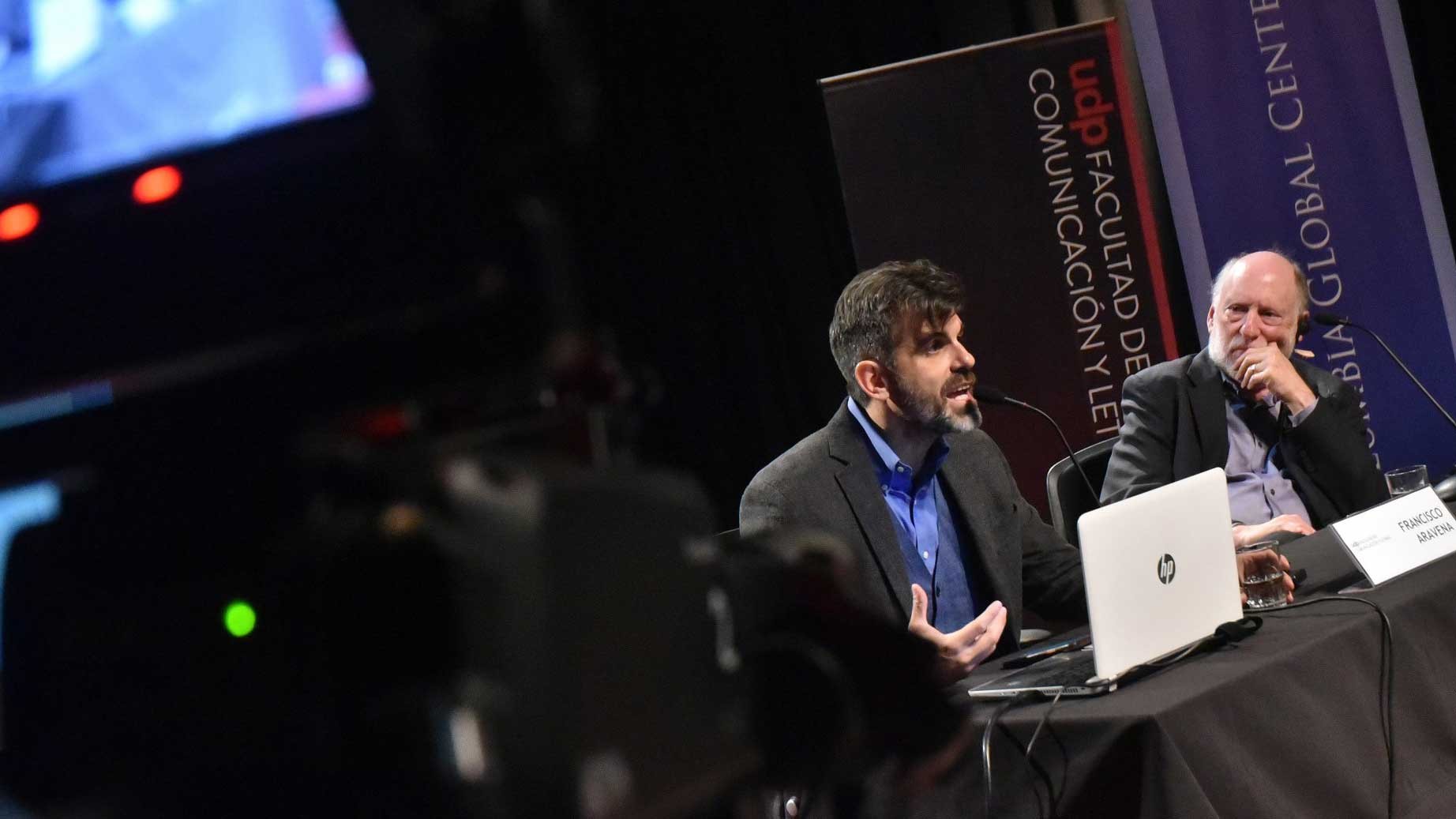Journalism professor Todd Gitlin presents Defining Social Movements in the Era of Social Media

The 50th anniversary of the student demonstration at the 1968 Democratic Convention in the United States was the backdrop for a week-long conversation in Santiago about the evolving nature of global social movements, journalism and social media. Todd Gitlin, the US activist, teacher and intellectual, was an integral part of the organizing committee of those emblematic protests, Students for a Democratic Society. He would become the organization's third president. He is now chair of the Columbia University School of Journalism's Ph.D. program in Communications, and the author of 16 books, many on social movements and media. His publications cover the last century (“The Sixties: Years of Hope, Days of Rage”), the contemporary (“Occupy Nation: The Roots, the Spirit, and the Promise of Occupy Wall Street, and sociology (“The Whole World Is Watching: Mass Media in the Making and Unmaking of the New Left").
Gitlin was invited by the Columbia Global Centers|Santiago and Universidad Diego Portales (UDP) to participate in Future of Journalism lecture series, an ongoing program led by the Santiago Center and UDP’s Journalism School. In his master-class, entitled “Journalism, Social Movements and the Reshaping of the Public Sphere", which was chaired by Columbia alumnus Francisco Aravena (Journalism 2003), Gitlin spoke about the threats to democracy and journalism presented by the current US President and the global rise of authoritarian figures. The origins of journalism, Gitlin explained, lay in attempts by intellectuals to bring truth and facts to the people, without being co-opted by politicians or other interest groups. Truth is again under attack as facts become questioned again, he said. "Journalism is living a crucial moment”.
“Fake news and partisan publications distribute their version of truth to select audiences through social media”, said Gitlin. This facilitates the fragmentation of public opinion…as a result the journalistic mission of placing facts within a relevant context to understand their meaning because even more vital.
While at UDP, Gitlin met with top editors of Chilean media outlets and faculty members.
The role of social media in modern social movements was the topic of Gitlin's second talk, this time at the Centro de Estudios Publicos (CEP), where he sat on a panel with Sofia Donoso, a fellow at the Centro de Estudios de Conflicto y Cohesión Social (COES) and PhD in Sociology from Oxford University. Her studies focus on Chilean social movements following the return to democracy in the early 1990s. Hosted by CEP deputy director, Lucas Sierra, the discussion was entitled, "Social Movements: From Molotov Cocktails to Twitter”.
Recent social movements have been triggered by social media, but that does not mean that social media is the only element of a movement, Gitlin said. He pointed to the Arab Spring, the 2014 Umbrella Movement in Hong Kong, the Gezi Park movement in Turkey, the Puerto del Sol movement in Spain, Occupy Wall Street, as well as in right-wing movements that owe much of their initial spark to social media. Social media is an accelerant for social movements, and is "extraordinarily important in transforming the sense of what it feels like to be in a social movement”, he explained. But, the ease of convening members of a movement is also a vulnerability, he warned.
"Because it is so easy to accomplish the goal of putting people in one place, it leads organizers to believe that it is actually organizing, but it is not organizing", Gitlin said. "It is organizing a moment, not a movement".
The impact of social media's influence on social movements and media is in development. "We are at the beginning of a phase of the interaction between technology and social formations that is both breathtaking and challenging", Gitlin said. "We are like in the first six months of the telephone...no one then have told you what the story of the telephone is today".
In his last presentation in Santiago, a roundtable with local intellectuals, Gitlin spoke about the impact of social movements in politics. He began by describing 1968 as the beginning of a counterrevolution led by the religious right and the business class, “of which Trump is an heir”. He also highlighted what he called “the intellectual failures of the US left”. During the discussion, he explained how women's movements are leading the anti-Trump offensive but warned that there was also a strong social movement supporting the current US President.
- Picture Gallery of Todd Gitlin’s visit to Chile here